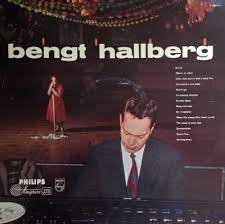
Daily Dose Of Jazz…
Bengt Hallberg was born on September 13, 1932 in Gothenburg, Sweden and studied classical piano from an early age. He wrote his first jazz arrangement at the age of 13. By 15 he recorded his first record as a member of a group led by bassist Thore Jederby and in 1949 he recorded with the Swedish alto saxophonist Arne Domnérus for the first time. The two musicians continued to play together for several decades.
During the Fifties, Bengt played with leading visiting American musicians tenor saxophonist Stan Getz and altoist Lee Konitz in 1951, and trumpeters Clifford Brown and Quincy Jones in 1953. During the same period he worked with Swedish baritone saxophonist Lars Gullin.
Hallberg had a versatile style and in his later years he wrote music for film and television, as well as choral arrangements. With Domnerus and Georg Riedel among others, he participated in the Jazz at the Pawnshop sessions in 1976.
Pianist, composer and arranger Bengt Hallberg, who also played accordion, transitioned on July 2, 2013 from congestive heart failure at the age of 80 in Uppsala, Sweden.
More Posts: arranger,bandleader,composer,history,instrumental,jazz,music,piano
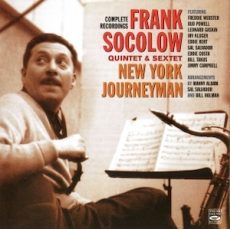
Daily Dose Of Jazz…
Irv Kluger was born in New York City, New York on July 9, 1921 and early in life he played violin before settling on drums. His first professional gigs came at age 15 and by the time he was 17 he played with Georgie Auld, then with Bob Chester and Freddie Slack. The mid Forties saw him playing with Dizzy Gillespie, Boyd Raeburn, Bobby Byrne and Herbie Fields. Following this he played with Stan Kenton, Artie Shaw, then for a short time in 1950 with Tex Beneke.
He played less jazz after 1950, working in the pit orchestras of Broadway shows such as Guys and Dolls. He returned to play with Artie Shaw again in 1953–54 as a member of the Gramercy Five. In the middle of the 1950s he moved to California and played at the Moulin Rouge in Hollywood as the house drummer.
He played with Dave Pell in 1956, and with Benny Goodman and Woody Herman later in life, doing much freelance work through the 1960s and 1970s. As a studio musician he played with Johnny Cash.
Drummer Irv Kluger, never led a recording session and transitioned on February 28, 2006.
More Posts: drums,history,instrumental,jazz,music
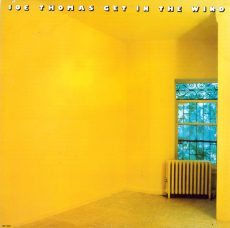
Daily Dose Of Jazz…
Joseph Samuel Thomas was born on May 31, 1933 in Newark, New Jersey. As a child, he learned to play alto and soprano saxophone, trombone, flute and piano, and also taught himself how to write music. Encouraged by his older brother, he began performing in clubs from the age of fifteen and was ultimately noticed by James Moody.
After enlisting in the United States Army he received a Purple Heart during combat in the Korean War. Returning to the States, Joe performed with Specks Williams and joined Rhoda Scott’s Trio in the early 1960s.
Thomas recorded with organist Jimmy McGriff and released a dozen albums under his own name in the late 1970s and early 1980s. As a sideman he also recorded five albums with Scott, and one each with Ambersunshower, Beck, Buddy Terry and Joe Tex.
Flutist, tenor saxophonist and bandleader Joe Thomas passed away in Orange, New Jersey at the age of 84 on July 26, 2017.
More Posts: flute,history,instrumental,jazz,music,piano,saxophone,trombone
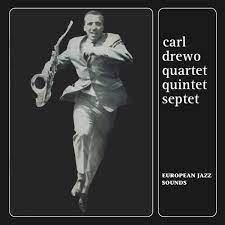
Daily Dose Of Jazz…
Karl Drewo was born May 17, 1929 in Vienna, Austria and as a child studied piano and accordion, but switched to tenor saxophone in his teens. In the late 1940s he worked with Charlie Gaudriot and Paul Reischman, followed by performing with Gert Steffens and Horst Winter in the early Fifties. He was a member of the Austrian All Stars in the mid-1950s and from 1956 to 1958 he worked with Fatty George.
He continued on by becoming a member of Kurt Edelhagen’s orchestra, where he played into the early 1970s. In the 1960s he recorded with Francy Boland, Kenny Clarke, Zoot Sims, and Jimmy Woode, among others.
After leaving Edelhagen’s group, he played with the Österreichischer Rundfunk band, and in the 1980s was a member of Peter Herbolzheimer’s ensemble. Later that decade he took a position as a lecturer at an arts school in Graz, Austria. In the Nineties he played with the Lungau Big Band, Rudolf Josel, and Rudi Wilfer.
Saxophonist Karl Drewo, often spelled Carl Drewo or Drevo, transitioned on May 10, 1995 in Wels, Austria.
More Posts: bandleader,history,instrumental,jazz,music,saxophone
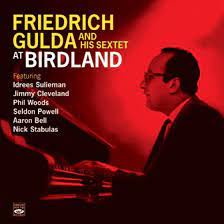
Daily Dose Of Jazz…
Friedrich Gulda was born on May 16, 1930 in Vienna, Austria and as the son of a teacher began learning to play the piano at age 7 with Felix Pazofsky at the Wiener Volkskonservatorium. In 1942, he entered the Vienna Music Academy, where he studied piano and musical theory under Bruno Seidlhofer and Joseph Marx.
During World War II as teenagers, Gulda and his friend Joe Zawinul were rebellious and would perform forbidden music, including jazz, in violation of the government’s prohibition of playing such music. Winning first prize at the Geneva International Music Competition in 1946, he began to play concerts worldwide, making his Carnegie Hall debut in 1950, and with Jörg Demus and Paul Badura-Skoda, formed what became known as the “Viennese troika”. Friedrich enjoyed a renowned classical career for years before his 1956 engagement at Birdland in New York City and at the Newport Jazz Festival.
In 1966 he organized the International Competition for Modern Jazz in 1966, and established the International Musikforum, a school in Ossiach, Austria two years later, for students who wanted to learn improvisation. From the 1950s on Gulda cultivated a professional interest in jazz, writing songs and free improvisation or open music improvisations. He also recorded as a vocalist under the pseudonym “Albert Golowin”, fooling music critics for years until it was realized that Gulda and Golowin were the same person.
In jazz, he found “the rhythmic drive, the risk, the absolute contrast to the pale, academic approach I had been taught. He also took up playing the baritone saxophone. His 1970 album, As You Like It, includes the standards Round Midnight and What Is This Thing Called Love?, as well as his own classic Blues For H.G. that is dedicated to Hans Georg Brunner-Schwer.
From the late 1960s through the 1980s he continued his straight-ahead swing and bop-based jazz often in European Jazz big bands, which he often organized yearly performances and recordings. He performed and recorded playing clavichord, percussion instruments, and a bass recorder wooden flute with musicians involved in free improvisation, including Cecil Taylor, Barre Phillips, Ursula Anders, John Surman, Albert Mangelsdorff, Stu Martin, and Fritz Pauer. He would go on to collaborate in the coming decades with Herbie Hancock, Joe Zawinul, and Chick Corea.
When the Vienna Music Academy awarded him its Beethoven Ring in recognition of his performances, he accepted it but then later reconsidered and returned it. To promote a concert in 1999, he announced his own death in a press release so that the concert at the Vienna Konzerthaus could serve as a resurrection party.
Pianist and composer Friedrich Gulda, who worked in both the classical and jazz fields, transitioned from heart failure at the age of 69 on January 27, 2000 at his home in Weissenbach, Austria.
More Posts: bandleader,composer,history,instrumental,jazz,music,piano,saxophone




